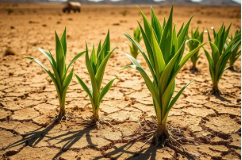
As Bali continues to recover from the global tourism slowdown caused by the COVID-19 pandemic and changing travel patterns, provincial leaders are now turning their attention to an often-overlooked pillar of the island’s economy: agriculture.
In a new policy direction unveiled this week, the Bali Provincial Government announced a strategic plan to diversify the island’s economy by investing in sustainable agriculture, reducing the region’s overwhelming dependence on tourism. The initiative aims to revitalize rural livelihoods, promote food security, and protect the island’s natural environment.
“For decades, Bali has focused primarily on tourism, but the pandemic taught us a hard lesson,” said Bali Governor Wayan Koster during a press briefing in Denpasar. “We must now build a more resilient and self-sufficient economy, and agriculture is a key part of that transformation.”
Key components of Bali’s agricultural expansion plan include:
- Restoration of traditional farming systems such as subak (Bali’s UNESCO-recognized irrigation system).
- Promotion of organic and climate-smart farming to protect soil health and reduce chemical dependency.
- Agrotourism initiatives to blend farming with travel experiences, allowing visitors to engage directly with local agriculture.
- Increased investment in processing and value-added products, such as Balinese coffee, cocoa, and herbal products.
- Support for young farmers through training, digital tools, and access to credit.
Officials say the strategy is not about abandoning tourism, but about balancing development and ensuring that rural communities share in the island’s growth.
Agriculture still provides livelihoods for thousands of Balinese families, especially in upland areas away from the major tourist centers. However, decades of rapid tourism growth have drawn labor away from farms and triggered land-use changes, often at the expense of rice fields and forests.
“There is a risk of losing our agricultural heritage if we don’t act now,” said Made Surata, a farmer from Tabanan district. “With more government support, young people might return to farming and carry on our traditions.”
The Bali Agricultural Office has also partnered with universities and environmental NGOs to conduct soil health studies, pilot regenerative farming techniques, and develop farm-to-table supply chains for local hotels and restaurants.
The plan has been welcomed by rural leaders, economists, and environmental advocates who see agriculture not just as a backup sector, but as a strategic asset for Bali’s long-term sustainability.
“Tourism is sensitive to global shocks,” said Dr. Ayu Pratiwi, an economist at Udayana University. “A diversified economy anchored in strong agricultural practices can help shield Bali from future crises while preserving its cultural identity and landscape.”
As Bali prepares for the 2025–2026 planting season, the government hopes its new agricultural blueprint will sow the seeds of a more balanced, inclusive, and climate-resilient economy one that honors the island’s roots while preparing for the future.














